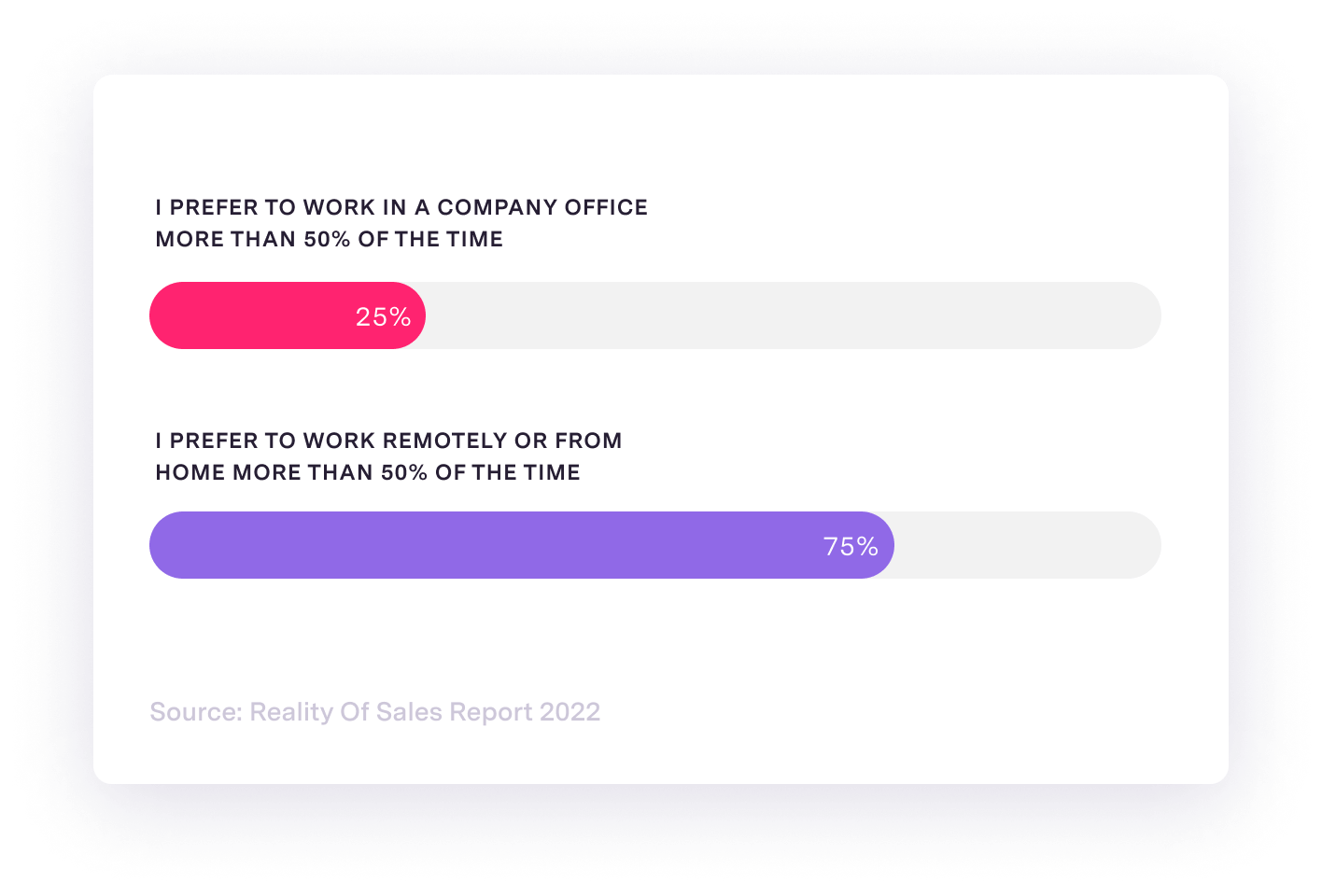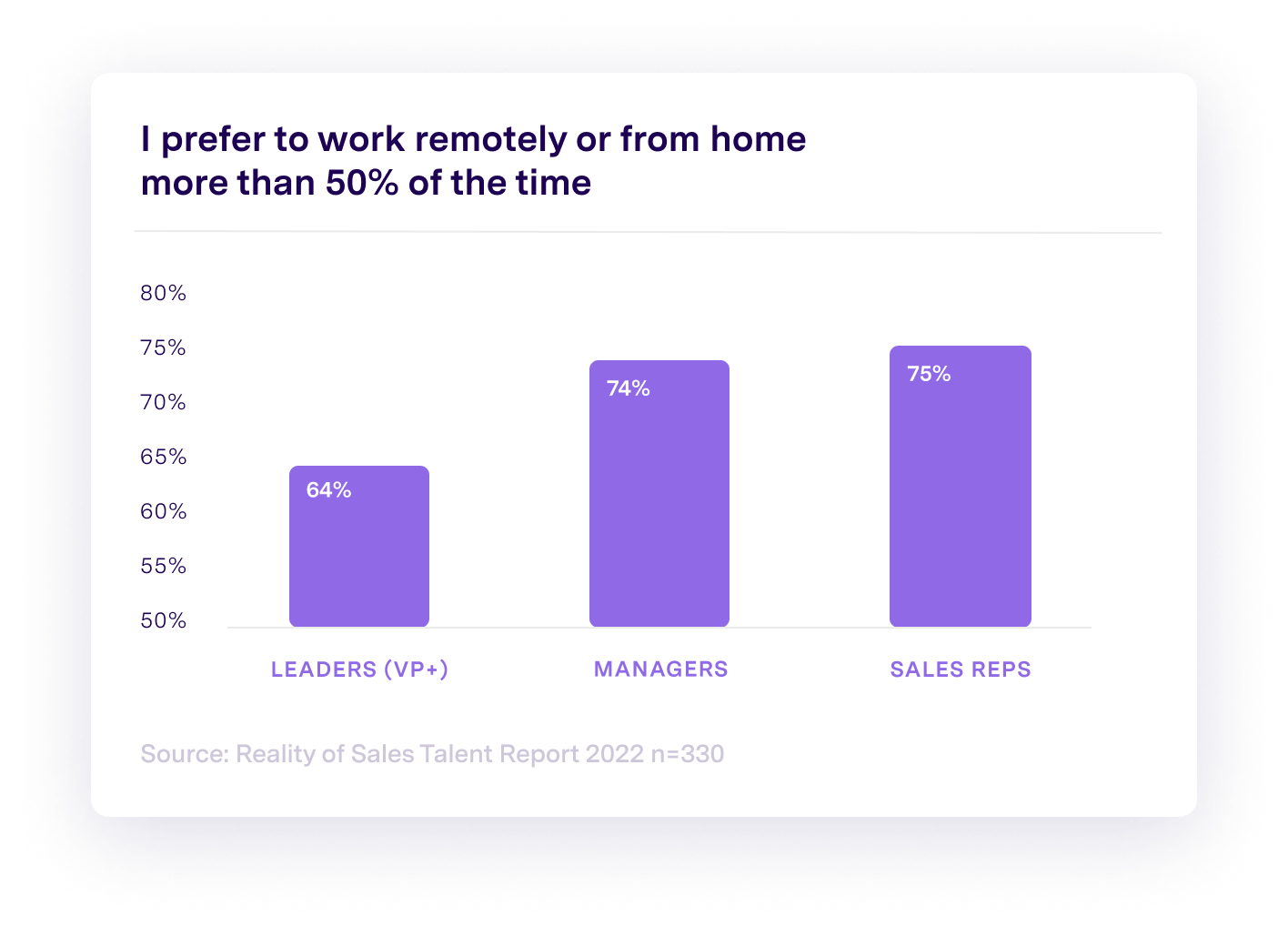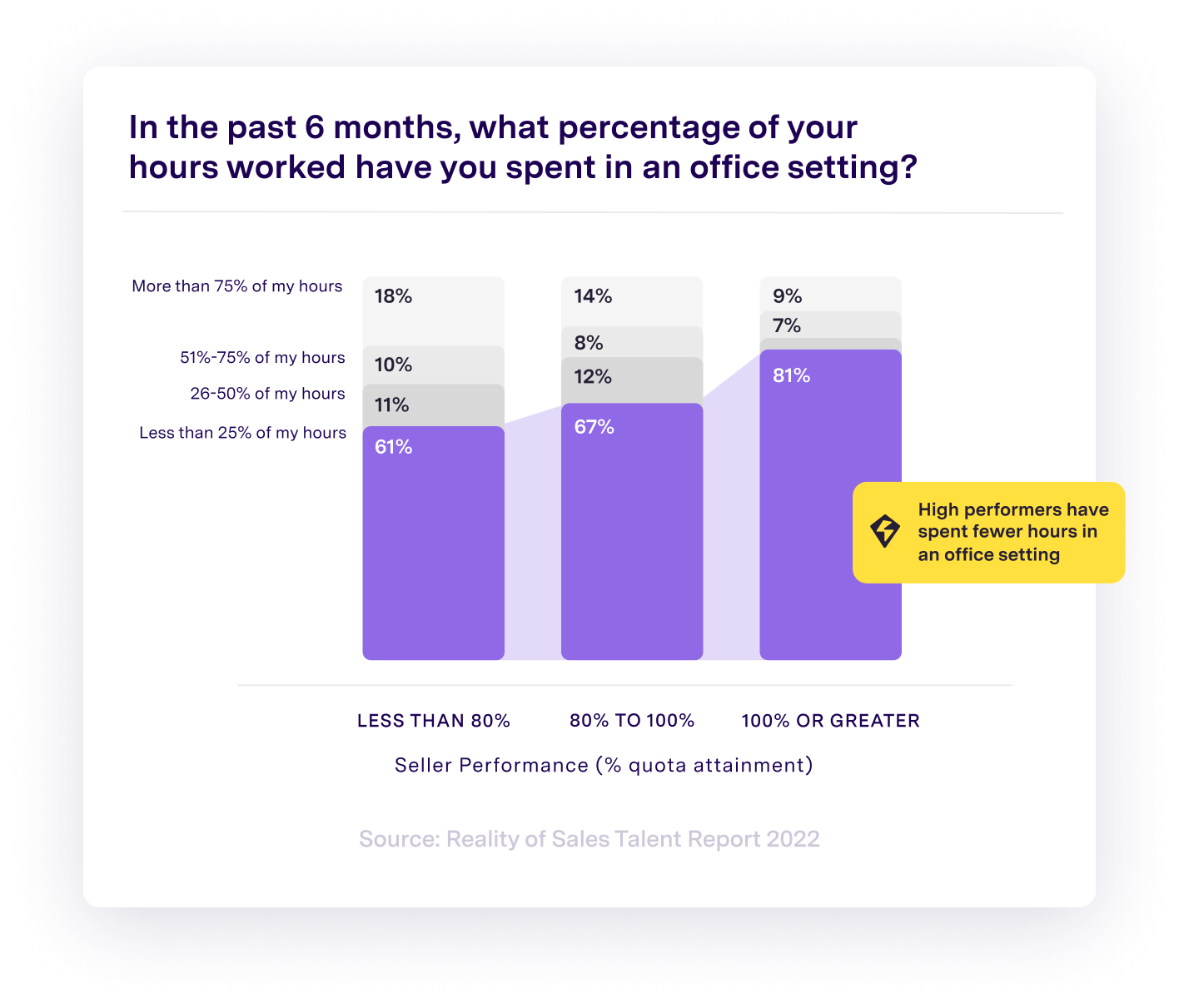Returning to the office? Not so fast. The case for remote sales
Your team has been working remotely for 2+ years, and you are ready to bring them back to the office.
But are they ready? Do you have a plan? Do you know what your staff is really thinking? Do they want to come back in person? And if so, every day or more of a flex/hybrid?
It may be time to pause, take a step back, and rethink your strategy to bring the sales team back to the office before returning to “how things have always been done.”
At the beginning of 2022, we surveyed hundreds of sales professionals to better understand the current state of sales talent. We were hoping to uncover insights that leaders need to attract, hire, and, most importantly, retain their most valuable asset: their people.
As part of our survey, we asked over 300 sellers about the amount of time they’ve spent in an office over the past six months and their preferences moving forward.
The results weren’t what we expected.
Here’s what we found broken down into three key insights.
INSIGHT #1: Sales professionals prefer to work remotely
Many employees have gotten quite comfortable working from home. A bit more flexibility. Maybe more family time. Possibly less eating out? No (stressful) commute.
There are definitely some pros.
But we wondered if that was just us. Were sales team members just working from home out of necessity or choice? If (when?) given the opportunity, would they opt to work in a company office setting?
This is why we ask the questions.
We asked, “In your current or next sales role, what option below would you prefer?
A: I prefer to work remotely or from home office more than 50% of the time.
B: I prefer to work in a company office more than 50% of the time.
Note: This is a binary choice. They had to choose one or the other. Not both. And no option for hybrid.

SURVEY SAYS: 3 out of 4 sales professionals prefer to stay home than return to an office setting.
So 75% of those surveyed — if faced with the option of home vs. office — would choose to work remotely or from their home office more than 50% of the time.
INSIGHT #2: Strike a balance between what leaders, managers, and reps want
Does working remotely versus working in a company office setting depend on your level and role within the sales team?
In short, it sure does!
We asked the same question, “In your current or next sales roles, what option below would you prefer?
And provided the same binary choice …
A: I prefer to work remotely or from home office more than 50% of the time.
B: I prefer to work in a company office more than 50% of the time.
We broke down the data by role: Leaders | Managers | Individual Contributors (Sales Reps)

SURVEY SAYS: Leaders were 1.5x more likely to prefer returning to the office than managers and individual contributors (sales reps).
Interesting, right?
As a sales leader, this is data that is essential to understand as you build out your return to office strategy — balancing what leaders want versus managers and sales reps is critical.
INSIGHT #3: Top performers spend a larger portion of their time working remotely
Alright, so people want to work from home…a lot. But while working remotely, are they helping or hurting the bottom line?
We asked, “In the past 6 months, what percentage of your hours worked have you spent in an office setting?
A: Less than 25% of my time has been spent in an office.
B: 25-50% of my time has been spent in an office.
C: 51-75% of my time has been spent in an office.
D: More than 75% of my time has been spent in an office.
We then compared that data against low, average, and top performers (note: column headings —“less than 80%… 81% to 100%” etc. — represent reported % of quota attainment).

SURVEY SAYS: High performers were more likely to spend more time working from home over the past 6 months.
Said another way, those who worked from home tended to be the top performers.
There are many benefits to working from home
Based on these insights, it is apparent you could have some trouble pulling your team back into the office, at least full time.
Working from home (aka, not in the office) — at least over the past 6 months has many benefits, which are hard to ignore.
Productivity remains high.
If you are worried about the team being productive while working from home, well, that’s not playing out in the data.
In fact, productivity was the lowest-ranked challenge faced by sellers in the past 6 months. Productivity of at-home workers does not appear to be an issue.
Virtual channels are preferred.
Buyers prefer virtual channels.
According to B2B sales: Omnichannel everywhere, every time, a recent McKinsey & Company report, nearly 2 of every 3 buyers choose remote human interaction or digital self-service vs. more traditional interactions.
Wow.
More diverse talent pools.
Flexible work opens up new and more diverse talent pools.
No longer being bound by location means you can hire people from all over the country and worldwide. Geography is almost meaningless.
When you increase the circumference of your talent search, you open the door for new candidates who previously may have not had the opportunity to work in your industry.
Remote or Office: What is the answer?
Remote.
Office.
Hybrid.
The “correct” or “best” choice will depend on your industry, the product or service you sell, how your customers prefer to engage, and what type of employees you currently have (and those you’ll hire in the future).
That said, the case for at least some form of remote sales seems to be here for the near — if not long-term — future.
How will you adjust?
For a deeper dive into this data and how to motivate and retain your top talent (whether in-office or remote), download the Reality of Sales Talent Report 2022.

